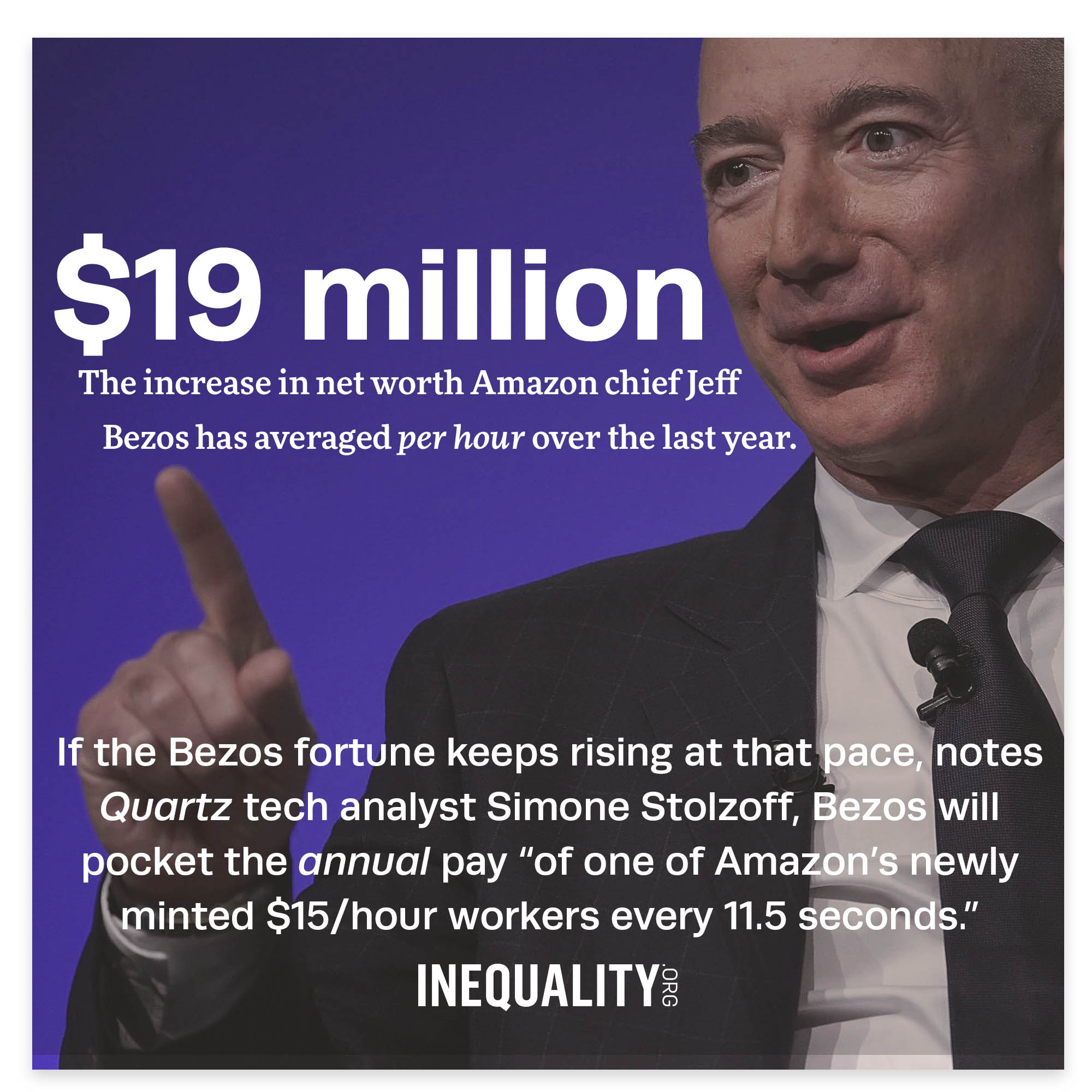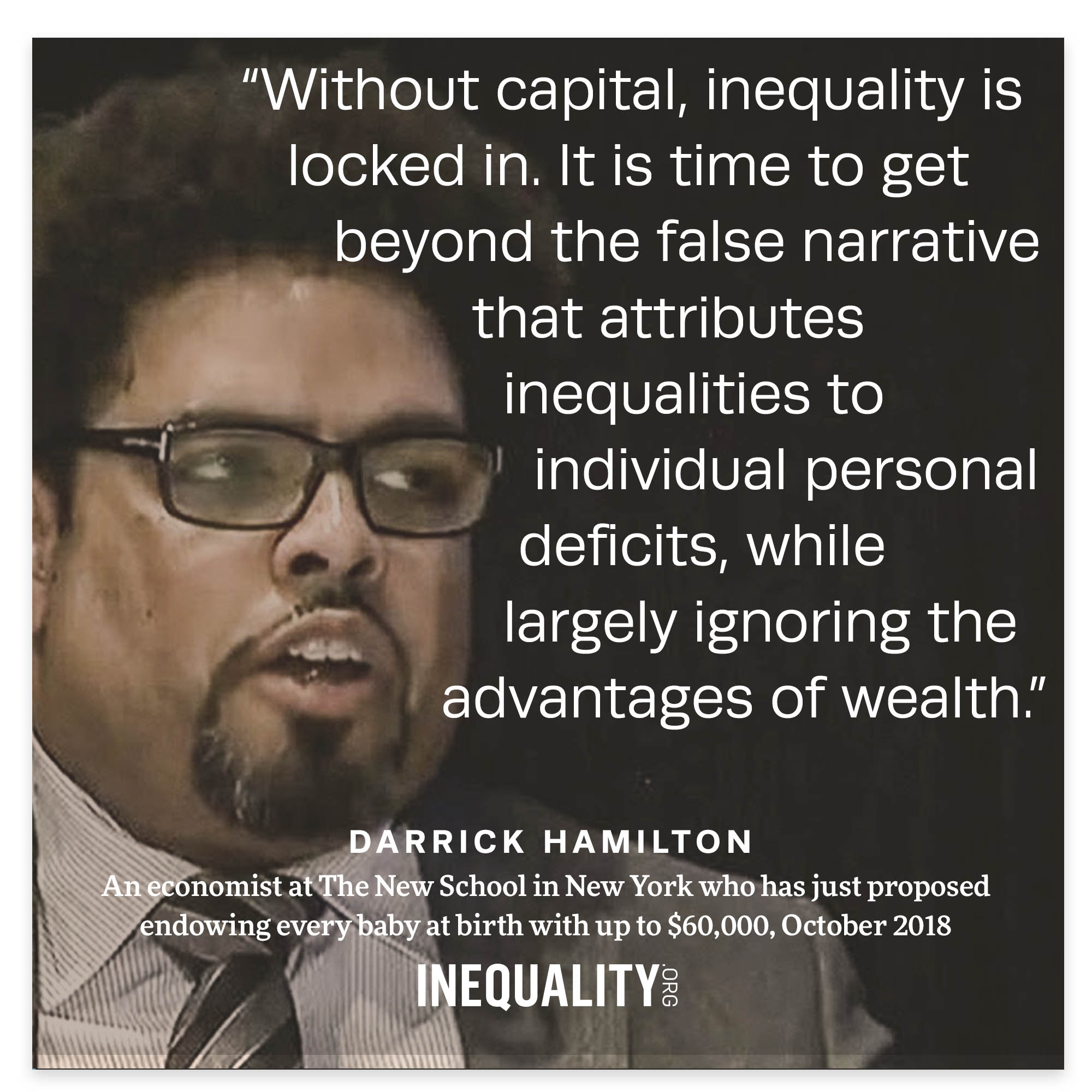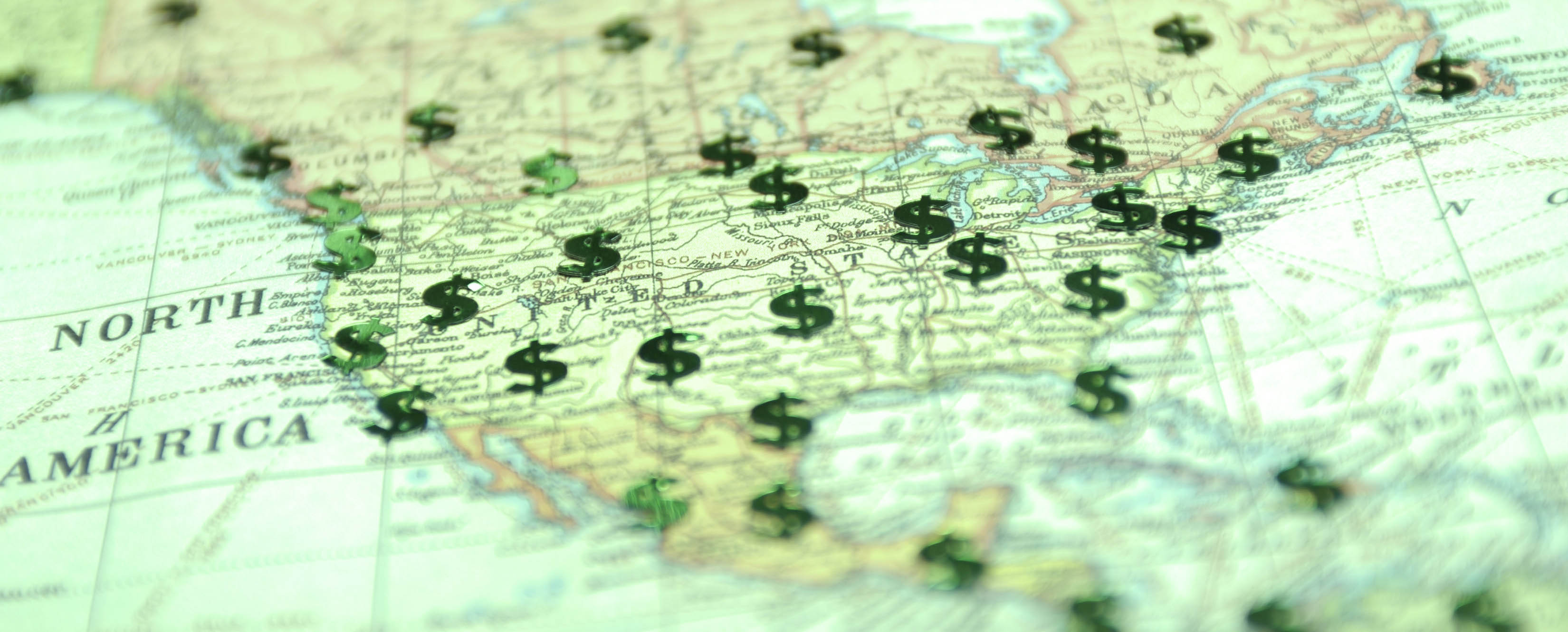Let's make sure Amazon's wage hike is one of many steps in demonstrating what collective outrage and smart organizing can accomplish.
|
THIS WEEK
|
Did you catch my colleague Sarah Anderson on NPR’s 1A last week? Sarah was talking about Amazon’s move to hike the company’s minimum wage to $15 an hour. That number — no accident — represents a symbolic nod to the Fight for $15 movement, and Amazon’s wage boost should remind us that collective power can alter economic reality for workers by the hundreds of thousands. We need that reminder because we have plenty still to fight for. Amazon has more than enough to fund a raise to $15 without eliminating bonuses and stock options for workers, as the company is now planning to do. Let’s make sure Amazon’s move only begins to demonstrate, for the nation, what collective outrage and smart organizing can accomplish.
Chuck Collins, for the Institute for Policy Studies Inequality.org team |
|
|
|
|
INEQUALITY BY THE NUMBERS
|
 |
|
|
|
|
|
|
FACES ON THE FRONTLINES
|
 |
Postal Workers: Our U.S. Mail Not for Sale!
|
| Postal workers and their allies are gathering across the United States today to demand that the country’s mail service stay in the hands of the public. The rallies are coming amid increasing threats to privatize the postal service, including a proposal from President Trump this summer to examine selling U.S. Mail off to the highest bidder. This week, postal worker Julie Bates tells us why that’s a terrible idea, and reminds us why we still need public postal service in the Internet age. |
|
|
|
|
WORDS OF WISDOM
|
 |
|
|
|
|
|
PETULANT PLUTOCRAT
OF THE WEEK
|
 |
| Keeping Cancer Cures a Corporate Profit Center |
| Who knew fighting cancer could be so lucrative? Memorial Sloan Kettering Cancer Center CEO Craig Thompson, for one. Last year, Thompson pulled down nearly $600,000 in cash and stock from his service on two for-profit drug company boards, all on top of his $6.7 million in Sloan Kettering pay the year before. No wonder Thompson looked the other way while his chief medical officer “failed to disclose” in medical journal articles that he had received millions from companies that could be banking on matters he was writing about. In September, that scandal went public, and Thompson at first insisted that working with for-profit companies must remain a priority. Last week, amid mounting public outrage, Thompson retreated and announced he would resign his corporate board seats. But the real scandal remains: a hospital-Big Pharma complex that focuses single-mindedly on patentable pharmaceuticals that generate huge returns for corporate execs and shareholders. |
|
|
|
|
GREED AT A GLANCE
|
 |
|
|
|
|
|
|
TOO MUCH
|
 |
| Nostalgia for NAFTA? The Rich Will Have Plenty |
| The “NAFTA” acronym will soon be disappearing from our trade deal lexicon, but our wealthy will always no doubt pay homage to it. America’s richest — as the new Forbes 400 figures make clear — will likely never see a quarter-century as outlandishly lucrative for the rich as the 25 years of NAFTA. Inequality.org co-editor Sam Pizzigati, author of the just-published The Case for a Maximum Wage, has more. |
|
|
|
|
|
|
MUST READS
|
This week on Inequality.org
Chuck Collins, Trump and the Dynasty Defense Industry. The president wouldn’t have his billions without the help of America’s professionalized wealth protection racket.
Elsewhere on the web
David Barstow, Susanne Craig, and Russ Buettner, Trump Engaged in Suspect Tax Schemes as He Reaped Riches From His Father, New York Times. Donald Trump has collected at least $413 million from his father’s real estate empire, with much of that coming via tax-dodging schemes.
Chuck Collins, Trump, Kavanaugh and the myth of self-made success, CNN. Denying the role of inherited wealth fuels the mythology of meritocracy and keeps us from addressing structural inequality.
Laurie Macfarlane, Why the distribution of wealth has more to do with power than productivity, Open Democracy. How we measure the wealth of nations mainly reflects the fortunes of capitalists and landowners rather than workers and tenants.
Oliver Milman, Climate gentrification: the rich can afford to move – what about the poor? Guardian. Affluents retreating from floods and wildfires are shifting to safer areas, bringing soaring property values with them.
Chris Dillow, Free Marketeers Defense of CEO Pay and a Rigged System a Disservice to Free Markets, Evonomics. Why increased inequality between bosses and workers will always be inefficient.
Frank Clemente, Under Cover of Kavanaugh, Republicans Passed Huge Tax Cuts for the Wealthy, OtherWords. Only 4 percent of U.S. workers have seen any payout from the corporate tax cuts enacted last December.
Nicholas Carnes, Why are so few US politicians from the working class? Guardian. The structural reasons why the privileged rule.
Eryk Bagshaw, Labor to force companies to reveal CEO to employee pay ratio, Sydney Morning Herald. The politics of pay ratios has hit Australia.
Jeremy Slevin and Zahra Mion, How much every DC lawmaker was paid by the restaurant industry before voting to repeal Initiative 77, ThinkProgress. Why did the D.C. council overturn the will of voters? Campaign finance records may have the answer. |
|
|
|
|